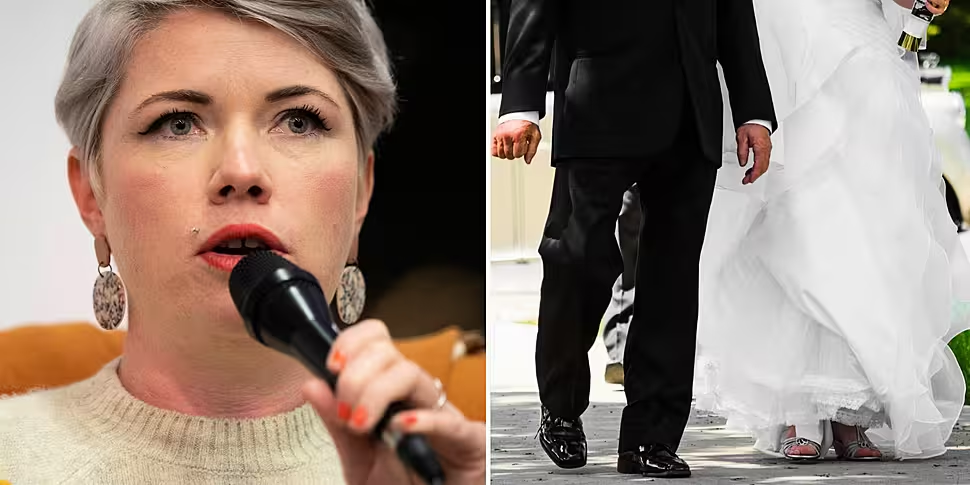Marriage was never about happiness - so why do people still buy into the ‘myth’ that it is romantic or can bring lifelong bliss?
That’s the question posed by Australian author Clementine Ford in her latest column for The Guardian.
Comparing marriage to the colourfully decorated wagon the children are lured into by the Child Catcher in 1968 film 'Chitty Chitty Bang Bang’, Ms Ford suggested the institution remains a societal trap for most women.
"Once women are safely ensconced in it, the bells and whistles adorning the exterior fall away to reveal nothing but a cage," she wrote.
On Newstalk Breakfast this morning, she said history shows us that marriage was never designed with women’s happiness in mind.
"What we might have right now is the idea that people can marry for love and freedom and so on," she said.
"Even that - companionate marriage, marrying for love - is only about 200-years-old.
"As you would know well in Ireland, the Catholic Church wielded its influence over the family and people's individual lives, and women in particular, certainly over the last 2,000 years.
"The recent history of women even able to choose marriage is something we should all be questioning.
"For the majority of the last 2,000 years women have had no choice, and they didn't have any identity legally.
"Their identity was covered under the authority of their father and then transferred into a husband if they were to marry, which is why they didn't have their names.
"Legally, they had to give them up and any money they had, any property they had, passed into the ownership of the husband.
"So, I think it's just factually correct to say that the institution of marriage wasn't exactly designed with the happiness of women in mind."
'Social cohesion'
Ms Ford said the institution itself is not about happiness.
"The institution of marriage hasn't been designed with the happiness of anyone really in mind," she said.
"It's been designed with the idea of social cohesion.
"Marriage prior to companionate marriage was historically about empire building and about kinship building.
"It was about retention of wealth, particularly as we moved from nomadic-living societies into a more agrarian-based society."
'PR campaign'
Ms Ford said the Disney approach to marriage never looks at what happens afterwards.
"The PR campaign that has been run by the marriage industrial complex to make women want those things has been very effective," she said.
"Women in our generation have been bombarded throughout our childhood with Disney fairy princess stories, romantic comedies - everything until the happily ever after - and nothing ever really looks at what happens after the end of the story.
"Of course people are drawn to the idea of love and a family unit, those are natural things to want.
"I'm not opposed to love, and I'm not opposed to people partnering or forming families. But there is a very limited idea in how families can be formed."
Ms Ford said that, even today, women who choose not to do these things are met, at best, with suspicion and harassment.
"The sort of gentle harassment from families, 'When are you going to meet a nice person? When are you going to settle down?'... and at worst outright harassment and abuse for it," she said.
"If it's really a case where we have established marriage as something where people just express their love to each other, why are women who choose not to do it still being treated the same way that the pejorative term of spinsters being applied to unmarried women in the 17th century was being used?" she added.
Listen back here:









